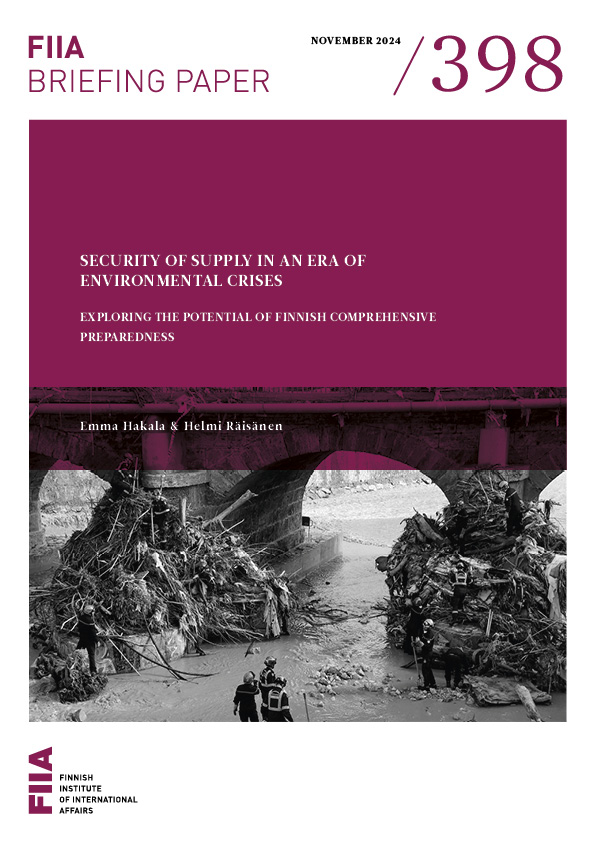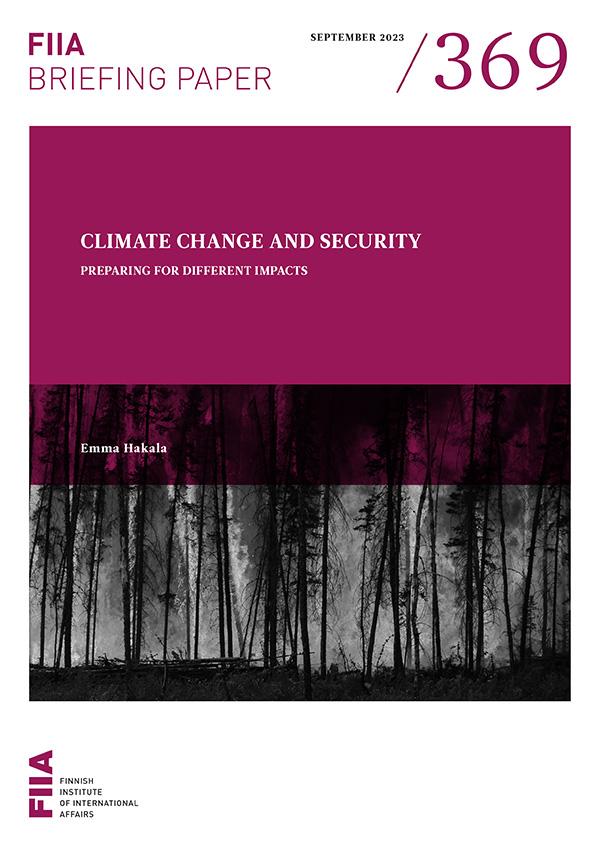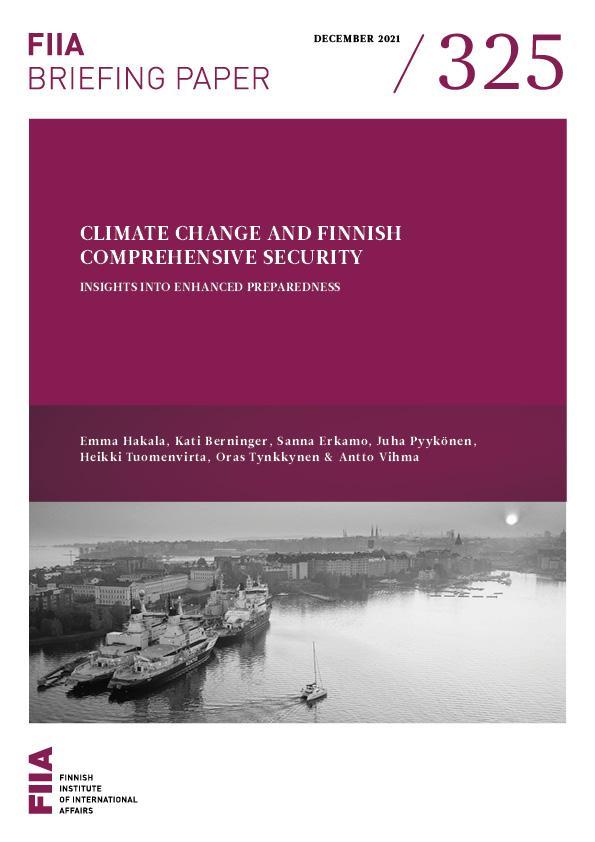
Climate change will increase the probability of crises affecting society and security of supply: for example, extreme weather events might disrupt manufacturing and logistics across sectors.
Energy transition relies on several raw material supply chains to develop new energy sources. However, growing demand threatens to outstrip supply for some raw materials in the near future, creating a potential bottleneck in the transition.
The Finnish model of security of supply, which emphasises comprehensive preparedness, is a feasible framework for addressing climate-related risks, but so far these have not been systematically taken into account.
An understanding of climate-related risks needs to be integrated into the shared situational awareness of everyone involved in security of supply operations.
Reliance on unsustainable activities might not be possible in a world that is largely moving away from fossil fuels. For example, the procurement of equipment for the Defence Forces must take into account the availability of fuel for decades to come.
This Briefing Paper is part of a research project titled ‘Climate change and Finland’s security of supply’, funded by the National Emergency Supply Agency.










